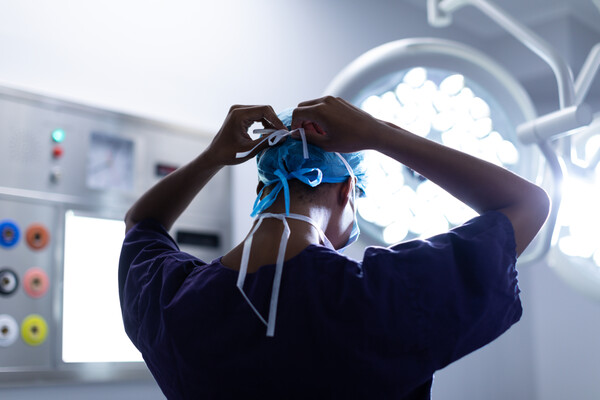
Recently, the Cheongju Division of the Daejeon High Court awarded 800 million won ($597,000) in damages in a lawsuit against a university hospital.
The reason was the negligence of its obstetrics and gynecology staff, who were late in taking measures to detach the placenta prematurely, causing brain lesion disorders in the newborn.
The Seoul High Court also recently awarded 20 million won in damages for a neonatal cerebral palsy case, citing a breach of the duty of explanation. The court overturned a lower court ruling that dismissed the damages claim. In July, the Pyeongtaek Division of the Suwon District Court also awarded 1.2 billion won in damages to an obstetrician-gynecologist for causing brain lesions to a child born after a late surgery. The total amount, including interest arrears, was 1.6 billion won.
Residents’ applications for ob-gyn departments drop amid frequent suits
According to the Ministry of Health and Welfare's medical residents’ application results for the first half of 2024, the overall application rate for obstetrics and gynecology was 67.4 percent. It dropped 4.5 percentage points from the previous year’s 71.9 percent. Only obstetrics and gynecology fell among the four departments of internal medicine -- surgery, obstetrics and gynecology, pediatrics, and adolescence.
According to the Korean Doctors Weekly's analysis, half of gynecology training hospitals could not meet the quota. The media outlet surveyed major training hospitals on Dec. 6 and found 28, half of the 56 training hospitals, failed to fill their quota. Eighteen had zero applicants. Even among the "Big 5" hospitals, only Seoul National University Hospital and Samsung Medical Center could fill their positions. Severance Hospital did not have a single applicant.
The application rate for obstetrics and gynecology, once over 100 percent, plummeted in 2017.
According to data from the Ministry of Health and Welfare, the application rate for obstetrics and gynecology in 2018 was 86.6 percent, down 17.5 percentage points from the previous year’s 104.1 percent. In 2017, the so-called Incheon fetal death occurred when a court sentenced an obstetrician-gynecologist to eight months in prison for professional negligence and manslaughter.
The court found the doctor guilty of "failing to carefully observe the condition of the fetus, leading to its death." The case went to the Supreme Court, where he was acquitted. However, the acquittal couldn’t stop the avoidance of the ob-gyn department once it began.
‘Society should share results of bona fide care through state protection’
The application rate, which had gradually recovered, dropped again this year. In 2023, the department filled its quota through additional recruitment in the year's second half. However, for the first half of 2024, the rate did not even exceed 70 percent. Obstetrics and gynecology workers believe that medical lawsuits have also affected it adversely.
"The application (rate) for obstetrics and gynecology majors has bottomed out again as a result of the verdict of a labor-related lawsuit," the Korean Society of Obstetrics and Gynecology said in a statement released on Dec.15. “Doctors are more reluctant to apply for risky fields, such as obstetrics."
Noting that this leads to a depletion of essential obstetrics and gynecology staffing and practice attrition, the society said, “The state should make efforts to solve this problem.”
The group added that bad outcomes from well-intentioned medical practice are "not the responsibility of the medical profession, but rather the responsibility of our society"
"We appeal to the judiciary to be rational and impartial in medical disputes to protect healthcare providers who provide good faith care," the society said. "The state must urgently put in place institutional arrangements to prevent the collapse of essential care, including obstetrics and gynecology."

